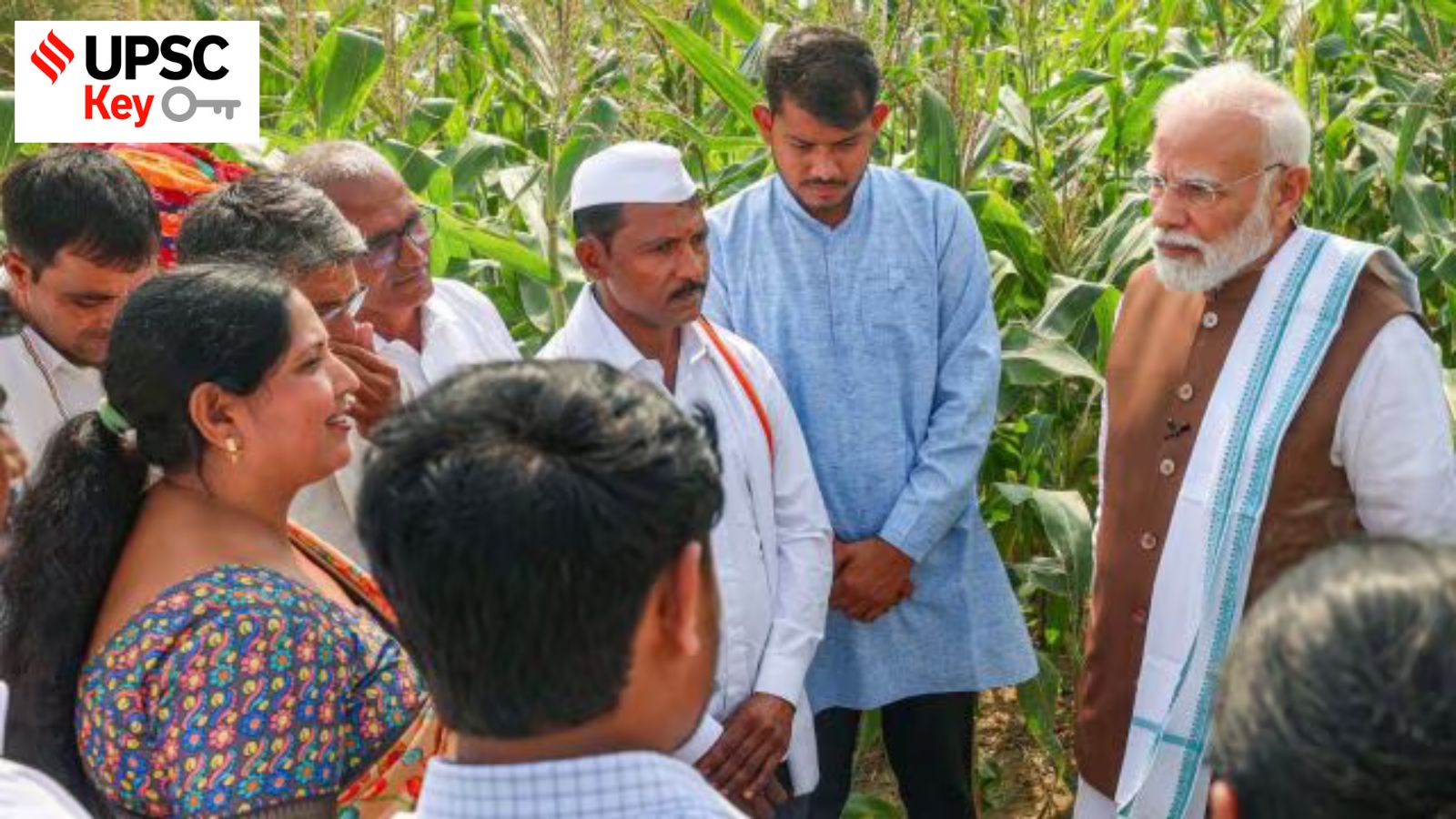Science
PM Modi Launches Major Agricultural Initiatives to Boost Self-Reliance

On October 11, 2025, Indian Prime Minister Narendra Modi unveiled two significant agricultural initiatives aimed at enhancing the country’s self-sufficiency in food production. The schemes, named the PM Dhan Dhaanya Krishi Yojana (PMDDKY) and the Mission for Aatmanirbharta in Pulses, boast a combined outlay of ₹35,440 crore and are expected to transform the fortunes of millions of farmers across India.
Key Objectives of the New Initiatives
The PMDDKY focuses on developing 100 agricultural districts identified based on low productivity, moderate crop intensity, and limited access to credit. While the PMDDKY does not have a separate budget, its funding of ₹24,000 crore will come from the convergence of various existing schemes. Meanwhile, the pulses mission, which has an outlay of ₹11,440 crore, aims to empower future generations by expanding the area under pulses by 310 lakh hectares, increasing production to 350 lakh tonnes, and raising yield to 1,130 kg/ha by the year 2030-31.
During the launch event, Modi emphasized the necessity for farmers to play a critical role in building a developed India. He stated, “After independence, you made India self-sufficient in food production. On the one hand, we must be self-reliant, and on the other, we must also produce for the global market… focus on crops that dominate global markets.”
Complementary Initiatives and Projects
In conjunction with these new schemes, Modi inaugurated 1,054 projects worth ₹3,650 crore completed under the Agriculture Infrastructure Fund (AIF) since June 2024. This included the foundation of 17 animal husbandry projects valued at ₹1,166 crore, along with 16 fisheries projects worth ₹693 crore under the Pradhan Mantri Matsya Sampada Yojana (PMMSY) and Fisheries and Aquaculture Infrastructure Development Fund.
The government also announced 11 projects worth ₹808 crore aimed at enhancing food processing through the Pradhan Mantri Kisan Sampada Yojana and the Production Linked Incentive Scheme for Food Processing Industry (PLISFPI). These initiatives are designed to tackle the myriad challenges facing the agricultural sector in India, including reliance on imports, fluctuating market prices, and inadequate infrastructure.
With the launch of these initiatives, the Indian government aims to address both immediate and long-term goals in agricultural development. The emphasis on pulses is particularly vital, as India has historically struggled with high import levels in this category. By fostering self-reliance in critical agricultural sectors, the government seeks to enhance food security and bolster the livelihoods of farmers across the nation.
As these schemes take shape, stakeholders will be closely monitoring their impact on India’s agricultural landscape and the broader implications for food production and security.
-

 World3 months ago
World3 months agoSBI Announces QIP Floor Price at ₹811.05 Per Share
-

 Lifestyle3 months ago
Lifestyle3 months agoCept Unveils ₹3.1 Crore Urban Mobility Plan for Sustainable Growth
-

 Science3 months ago
Science3 months agoNew Blood Group Discovered in South Indian Woman at Rotary Centre
-

 Sports3 months ago
Sports3 months agoBroad Advocates for Bowling Change Ahead of Final Test Against India
-

 World3 months ago
World3 months agoTorrential Rains Cause Flash Flooding in New York and New Jersey
-

 Top Stories3 months ago
Top Stories3 months agoKonkani Cultural Organisation to Host Pearl Jubilee in Abu Dhabi
-

 Science3 months ago
Science3 months agoNothing Headphone 1 Review: A Bold Contender in Audio Design
-

 Sports3 months ago
Sports3 months agoCristian Totti Retires at 19: Pressure of Fame Takes Toll
-

 Top Stories3 months ago
Top Stories3 months agoAir India Crash Investigation Highlights Boeing Fuel Switch Concerns
-

 Business3 months ago
Business3 months agoIndian Stock Market Rebounds: Sensex and Nifty Rise After Four-Day Decline
-

 Politics3 months ago
Politics3 months agoAbandoned Doberman Finds New Home After Journey to Prague
-

 Top Stories3 months ago
Top Stories3 months agoPatna Bank Manager Abhishek Varun Found Dead in Well









